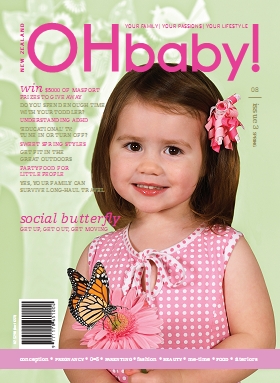Book club

When your little ones start having regular sleeps, you
may long to read something other than picture books, and
(gasp!) you may actually have time to devote to some recreational
reading. Better yet, why not combine your love of reading with your
need for some me-time, and start a book club for yourself and your
like-minded friends? Aggie White explains how.

Starting a book club is a fantastic way for friends to connect and give the ol' brain a good workout - without a math problem or game show host in sight. You probably know at least a few people who like to read, and a great way to make new friends, and strengthen connections between existing friendships, is to start a book club. So how do you get started? The obvious first step is to recruit members; but there are a few things to consider first.
How many people do you want?
If you hope to meet in someone's living room, you don't want to
have too many people. Then again, you don't want it to be too
small, or you may find yourself hosting you, yourself and I next
time that nasty cold does the rounds!
How often do you want to meet, and how many books do
you want to discuss?
Generally, meeting once a month and reading one
book a month works well. We'd all like to read more, but
realistically, can you commit to more than one book? A word from
personal experience - there is nothing more likely to suck the fun
out of a book club than finding yourself in a panic the night
before because you haven't read the book. It's like time-warping
back to 5th form, and cramming the night before a big
exam.
How will you choose your books?
This is probably the most important question of all. I think
everyone putting a book forward and then choosing as a
democratic group is the best way to go. It's worth setting aside a
quick coffee catch-up or an extra meeting once every three months
to select books for the future. That way you don't waste too much
of your meeting and discussion time arguing about what you want to
read next. Another benefit of choosing books a couple of
months ahead is that you may be able to make use of those book club
offers that you see in magazines. They really are quite
helpful!
What kind of book to choose?
This, too, can be tricky, but it is worth nutting out
guidelines right at the start. A lot of clubs will restrict
themselves to just fiction and memoirs/biographies; some will
instigate a length limit (e.g. under 400 pages); some will use an
age limit (e.g. only books from the last 12 months; only books from
the last three years?) Will you do classics? If so, how often -
maybe once every
third month? Will you do non-fiction? What about translations of
foreign novels? There's a lot to think about.

How do we discuss the book?
You may as well ask how long is the "12 or less" queue at the
supermarket. It really does vary. Some book clubs will use the same
set of questions for every book; others prefer to let the
discussions grow organically from each member's statement of
whether they enjoyed the book or not.
There are no hard-and-fast rules,
though I think letting the discussion grow naturally is good at the
start when you're still tweaking your book choices.
I think that a book club should be
about having fun - enjoying what you read and then talking about it
with other people. You really want to make sure that it doesn't
feel like homework, and remember that there aren't any right or
wrong answers.
Perhaps creating a set of questions
is something to look at further down the track, when everybody is a
little more familiar and at ease with each other. This can be very
helpful if you find your open discussion continually veers off
course like your shopping trolley; or grinds to a halt like a
three-year-old after a birthday party.
Where do we get our books from?
Anywhere you can! A lot of bookstores have
book club programmes where a registered book club may get a
discount (often 10%) off that month's chosen book. They are usually
great at ordering them in so you don't find yourselves short of
books if the book you choose turns out to be
super-popular!
If your group doesn't want to be
restricted to buying their books from just one shop, remind people
about the various customer loyalty programmes available at many
stores/chains. Some will let you earn bonus points with every
purchase, which you get to spend in store at a later date. Others
do a "buy 10 get 1 free" card.
Nearly every bookstore will have a
designated book buyer. Make a point of asking to meet this person
and finding out what days/hours he or she works. Chances are they
will be true book lovers and happy to make recommendations for the
group. Some bookstores even have displays just for book
groups!
How do I choose what book I think we should
read?
Reading, like anything, is a matter of personal taste. Once you
have your book group's selection rules in place, the easiest thing
to do is ask "What books have I enjoyed in the past?" Maybe that
author has a new book out. Maybe you've found a topic
you'd like to revisit, or maybe it's a genre you find yourself
returning to time and time again.
Knowing what you have liked in the
past is a big help to people who are making recommendations for
you. Next time you're stuck in a bookstore, not sure what to get,
look for a staff member (find one who's not lugging great stacks of
books or in the middle of serving - they'll appreciate that) and
ask them, "If I liked this... What would you recommend for me?"
Take a pen and paper and write down their
suggestions.
If you have time, grab a book and
read the first few pages. Try to ignore the cover. Some book covers
perfectly capture the book, and others are nothing like it, so if
you've heard good things about a book and the topic sounds
appealing, rely on what you read in those first five pages, not the
picture on the front!
Do some research. Check out the top
10 this week at the local bookstore or library; look at a book you
like online at Amazon.com and check out the "If you liked this,
you'll love" selection; read the book review pages in magazines and
newspapers; find out when book shows are on TV or the radio; ask
people!
What are classic books?
A lot of bookstores have a "classics" section. This doesn't
necessarily mean the books are old, but they are usually famous and
much-praised. Here is where you will find books from the likes of
Jane Austen, Charles Dickens, the Brontës and Shakespeare. Don't
forget the so-called "modern classics" (again, modern could
refer to anything written after 1900 to now). If in doubt,
ask.
Now you're ready to go! Invite some friends, make everyone a
cuppa, and get reading.
Aggie White is a hardcore book lover who works in publishing and has belonged to 12 book clubs over the past decade. She is always reading, even while driving, which she admits is not necessarily good for one's eyes.
As seen in OHbaby!
magazine Issue 3: 2008

Subscribe to OHbaby! magazine
Purchase Issue 3

